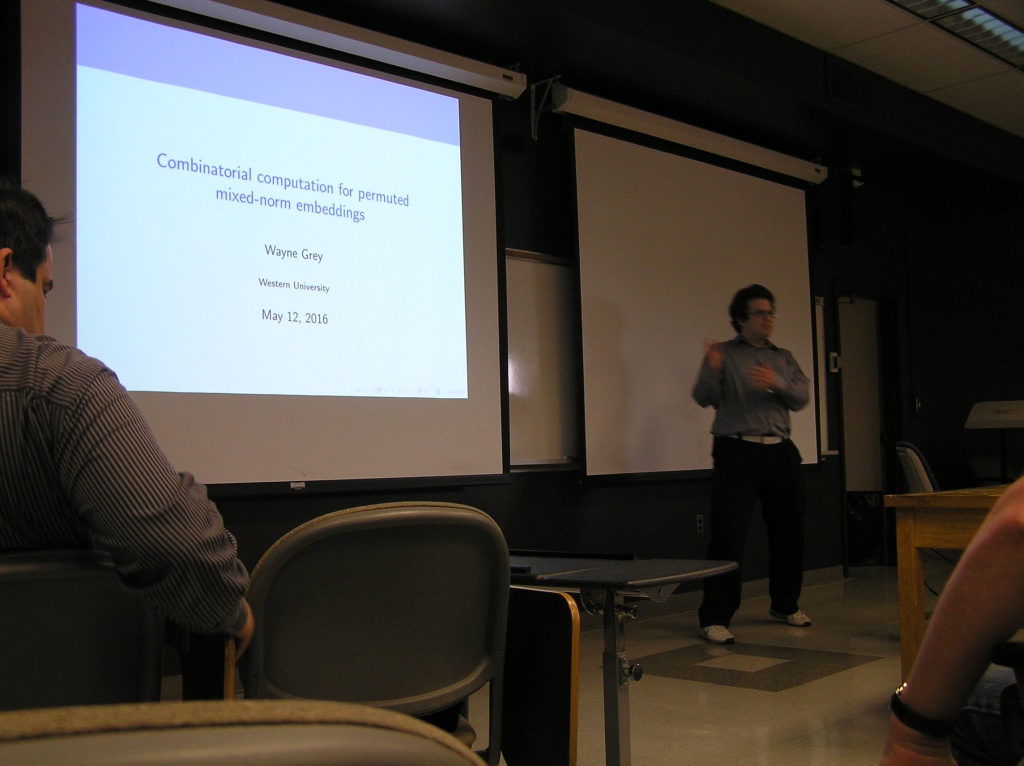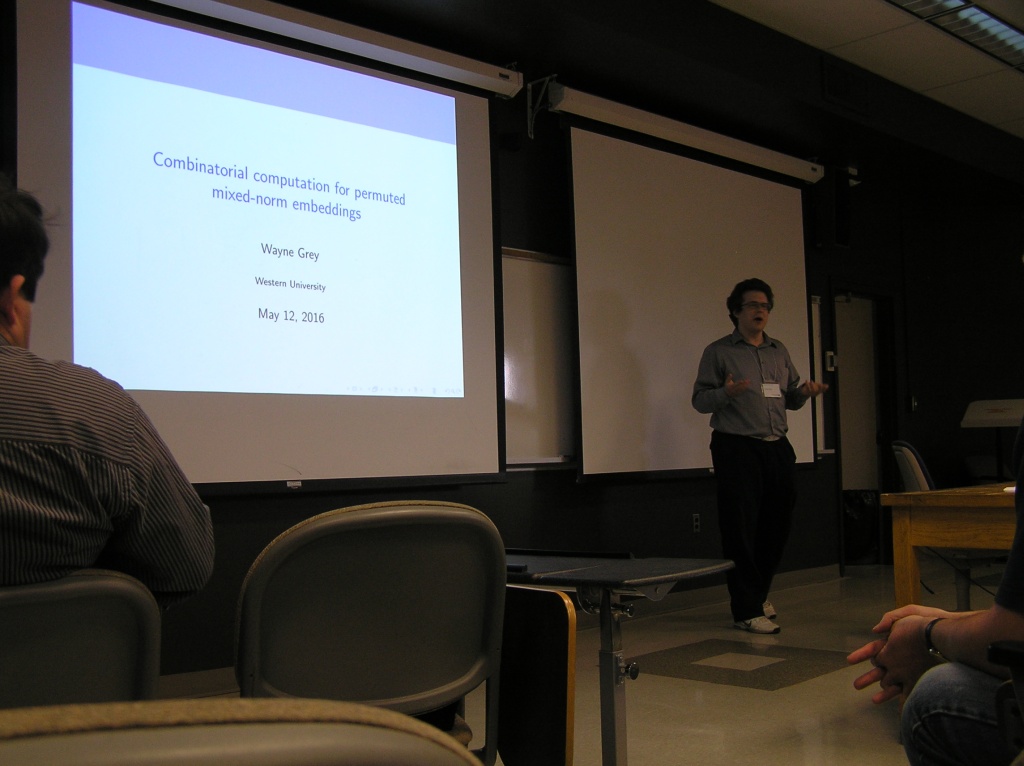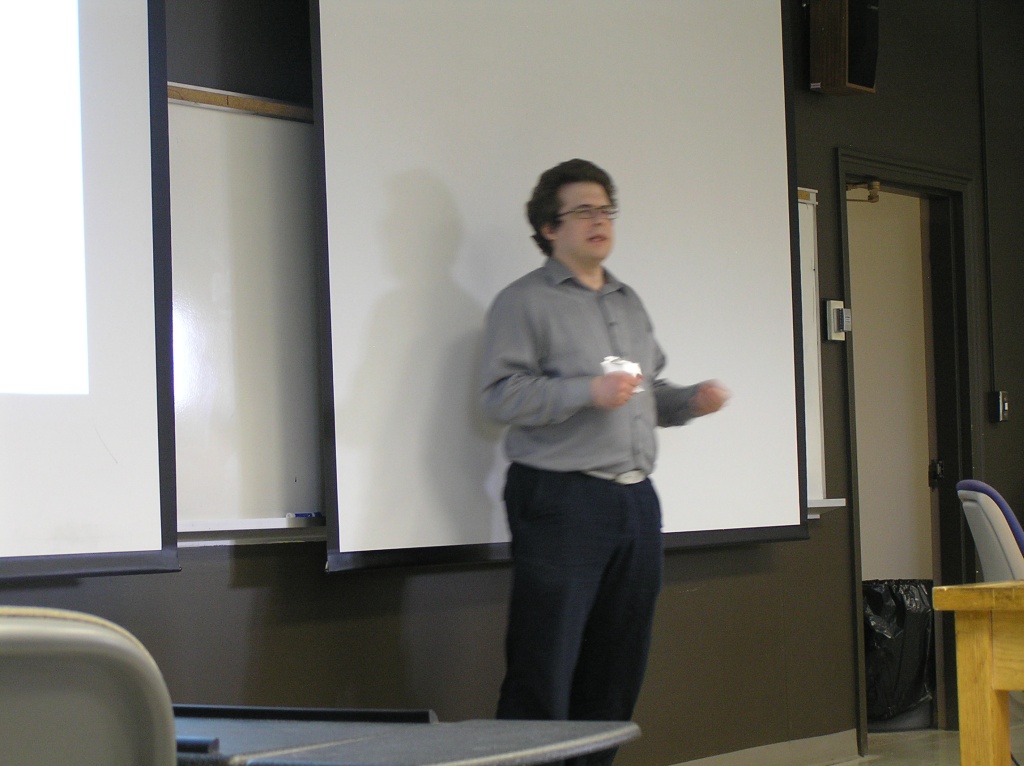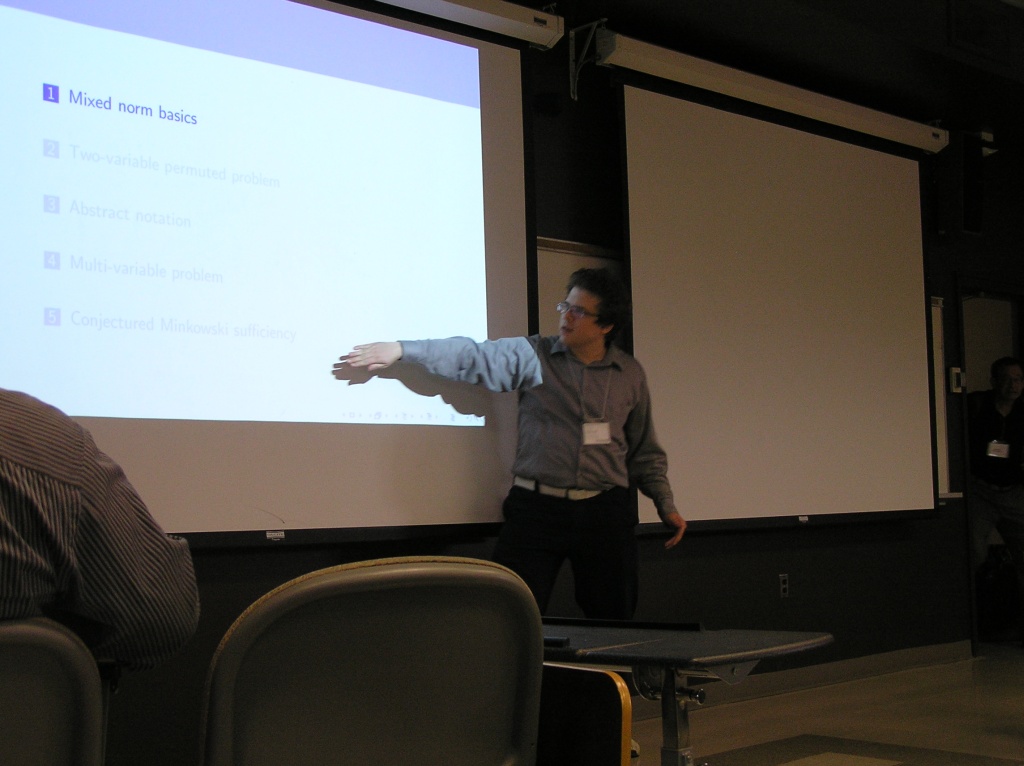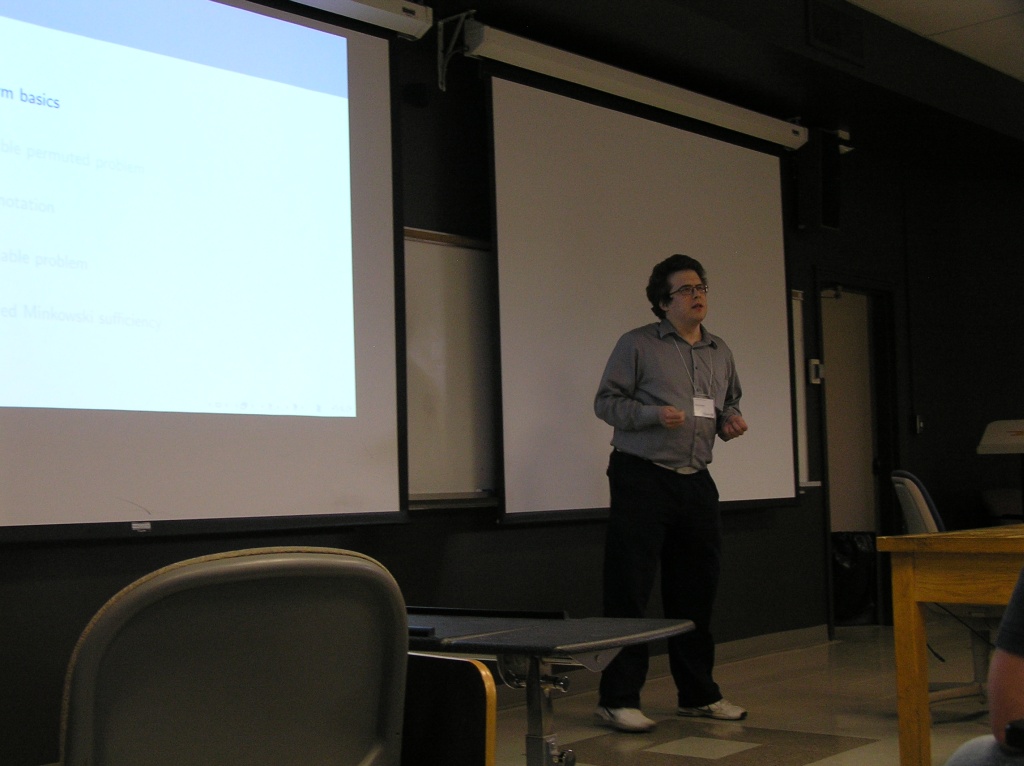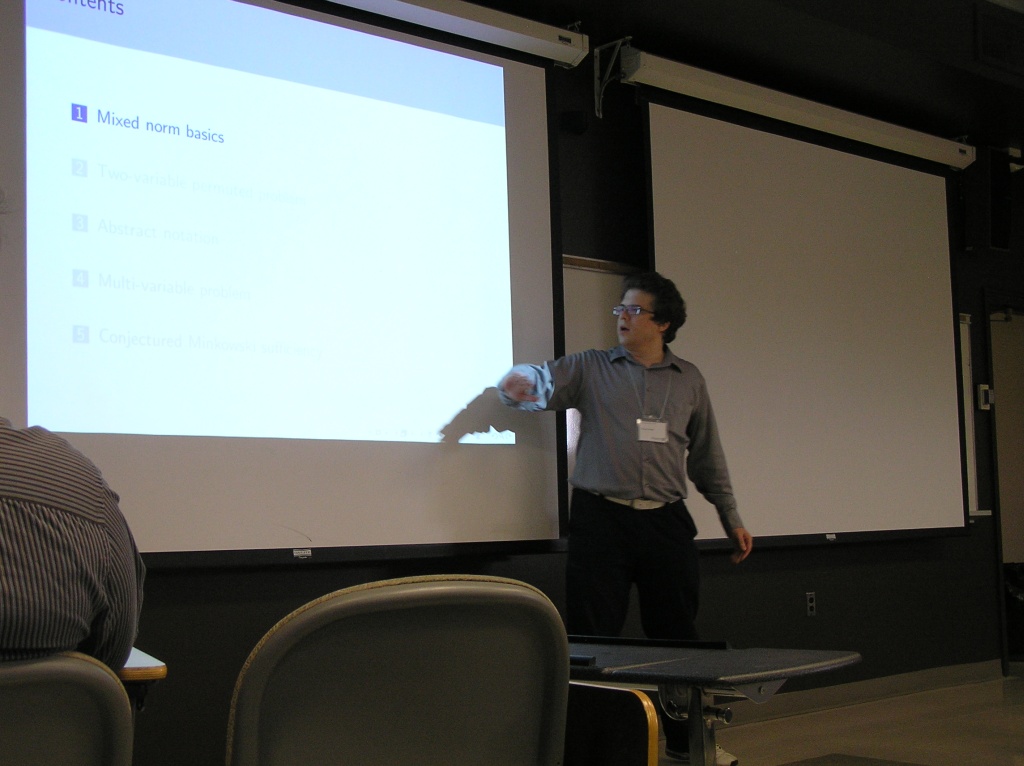Wayne Grey, Department of Mathematics, Western University
Combinatorial computation for permuted mixed-norm embeddings
My 2015 thesis solved nearly all cases of the inclusion problem for mixed Lebesgue norms in two
variables, leaving only one specific case, with atomic measures and exponents in a particular order.
Finding the best constant in this difficult case turns out to generalize the (NP-hard) optimizing
version of the partition problem.
A simple sufficient condition based on Minkowski's integral inequality is also necessary for nonatomic
measures. Even for arbitrarily many variables, a combinatorial argument fully solves the problem with
nonatomic measures by reducing it to two-variable subproblems.
This talk focuses on the outstanding question of whether this Minkowski condition on two-variable
subproblems is sufficient even with atomic measures. The analytic problem is translated into a
combinatorial one, akin to bubble sort but more complicated, with a substitution move in addition to
the adjacent swap.
Computational experiments designed to find a counterexample eventually led me to conjecture that there
isn't one, and gave insights which assist work by hand. Specifically, they showed that sometimes more
exchanges are necessary than in bubble sort. The smallest such example has four variables and begins by
swapping an initially in-order middle pair, which is swapped back later.
